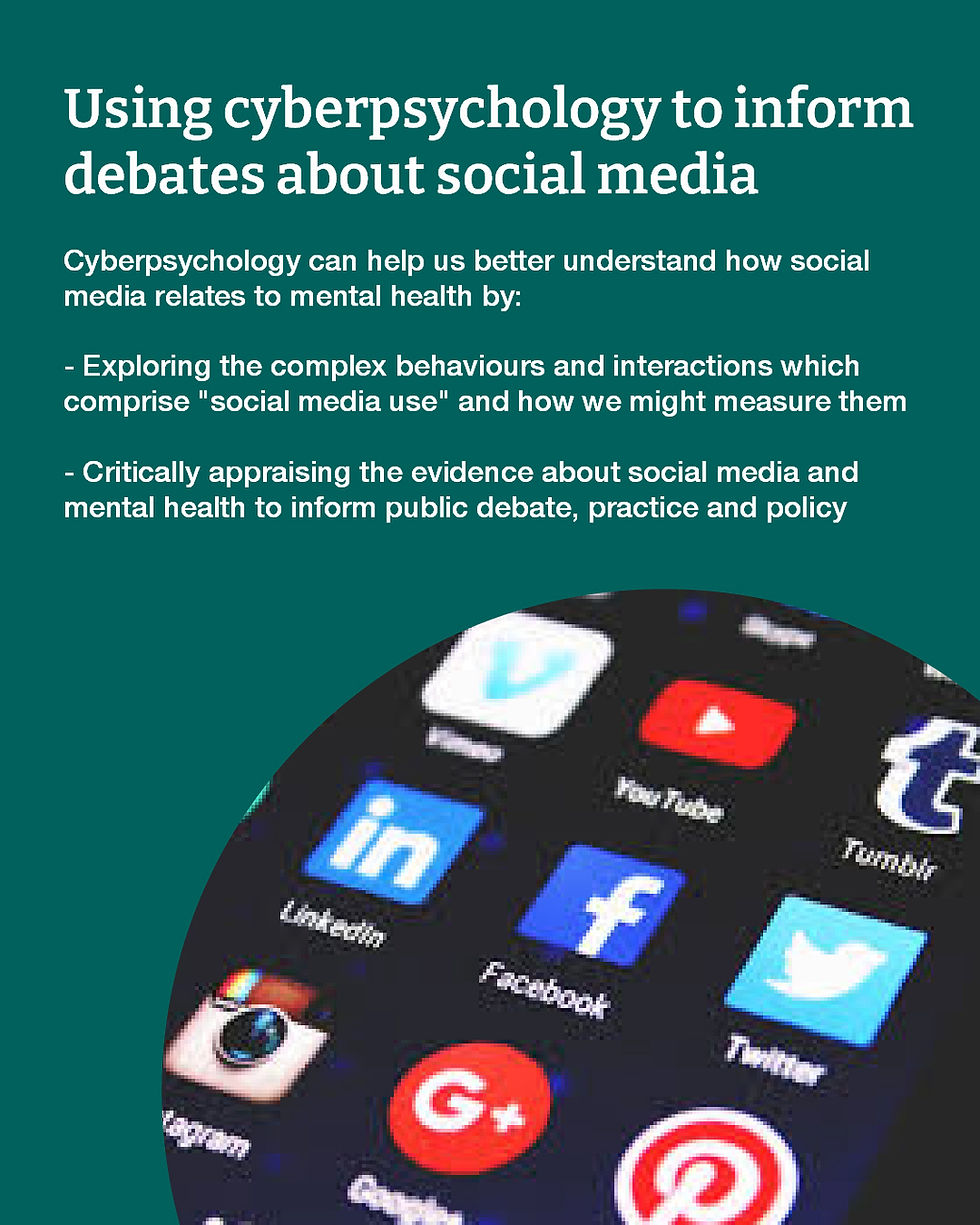Can social media behaviour be used to tailor persuasive communication in online consumer contexts?
- LindaKKaye

- Jun 17, 2025
- 3 min read
Blog post authored by BSc (Hons) Psychology student Luiza Quinn and Professor Linda Kaye
People in society are exposed to persuasive communication across many different contexts: governments and companies whereby ‘persuasive appeals’ are used to influence receivers’ thoughts, feelings, or actions. For example, it may encourage people to eat healthier, purchase a particular product, or vote for a specific candidate. Persuasive mass communication is aimed at encouraging large groups of people to believe and act on the communicator’s viewpoint. However, research shows that persuasive appeals are more effective in influencing behaviour when they are tailored to individuals’ unique psychological characteristics such as personality characteristics. As such, being able to identify psychological characteristics from people’s digital footprints, such as via social media behaviour presents a key opportunity for tailoring persuasive communication. This underpins the work conducted by Matz et al. (2017)
So what did they do?
The researchers gathered lists of Likes revealing high and low levels of personality traits such as extraversion and open-to-experience from the myPersonality Facebook app between 2007 and 2012. Researchers also utilised the 100-item International Personality Item Pool (IPIP) questionnaire, which is a widely used measure of personality.
They conducted three field experiments which reached over 3.5 million individuals. Their aim was to see if purchasing behaviours increased when advertisements were specifically tailored to users’ personality traits.
Experiment 1 and 2
In Experiment 1, based on users’ levels of extraversion (high vs low), the researchers developed different versions of Facebook adverts related to a UK-based beauty retailer for 7 days on Facebook, with female participants. People scoring high on extraversion are described as energetic, active, talkative, sociable, outgoing, and enthusiastic; people scoring low on extraversion are characterized as shy, reserved, quiet, or withdrawn.
In Experiment 2, they replicated Experiment 1 but with the personality trait of openness-to-experience. Those with high openness may be imaginative while those with low openness may be more tradition and prefer familiarity. The advertisement ran on Instagram and Facebook for 12 days.
Experiment 3
In Experiment 3, the researchers targeted Facebook users who liked games similar to a puzzle shooter app, and ran two advertising campaigns over 7 days: one with a standard, energetic message and another tailored to appeal to introverted users with a calmer tone.
What did they find?
It was found that matching the content of persuasive appeals to an individuals’ psychological characteristics significantly altered their behaviour. This was measured using their number of clicks and purchases. For example, in Experiment 1, matching the advert to users’ extraversion positively affected the number of purchases of the make-up product, which in some cases resulted in up to 40% more clicks and up to 50% more purchases than impersonalised counterparts. In Experiment 2, clicks and transfers to the product were found to interact with openness to experience. Finally, in Experiment 3, tailored, introvert-friendly advertisements performed better for those with introverted traits which was evidenced from greater number of downloads of the game and more clicks on the advertisement.
So what?
Applying psychological targeting makes it possible to influence the behaviour of large groups of people by tailoring persuasive appeals to the psychological needs of the target audiences. Commercial companies looking to boost consumer engagement and behaviour should consider using psychologically tailored advertising. Marketing messages aligned with a target audience’s personality trait, such as extraversion, could increase clicks, purchases, or app installations.
References
Matz, S. C., Kosinski, M., Nave, G., & Stillwell, D. J. (2017). Psychological targeting as an effective approach to digital mass persuasion. Proceedings of the national academy of sciences, 114(48), 12714-12719. https://doi.org/10.1073/pnas.1710966114



Java is a core programming language taught in many university-level courses, but tackling Java projects can be stressful for students juggling multiple assignments. That’s why accessing professional java programming assignment help is a game-changer. This expert-led service offers detailed coding assistance, logical explanations, and on-time delivery tailored to academic standards. With support from qualified programmers, students can understand Java better and boost their grades with ease. It’s an effective solution for mastering Java confidently.